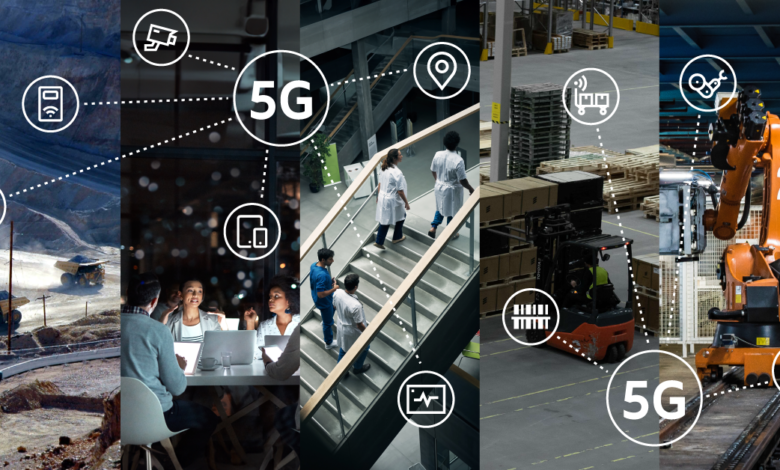5G: Transforming Connectivity and Driving Growth in India
With ongoing investments and government support, India is on track to achieve comprehensive 5G adoption by 2025.

5G, the fifth generation of wireless technology, offers superior speed, reliability, and network capacity compared to earlier generations. Designed to support seamless communication between devices, machines, and people, 5G delivers high-speed, low-latency connections. As the world’s second-largest telecommunications market and home to over 800 million broadband users, India plays a significant role in the global digital landscape, with one of the largest connected populations worldwide.
Rapid 5G Deployment in India
India has emerged as a global leader in 5G deployment, achieving remarkable progress within a short period. As of June 2024, the country had established 448,700 5G base transceiver stations, marking a 24-fold increase in less than two years. Key contributors to this swift rollout include Airtel, Indus Tower, and Tata Communications. While India’s rapid expansion presents numerous challenges, including spectrum allocation, regulatory frameworks, and high infrastructure costs, it also unlocks opportunities for economic growth, innovation, and enhanced user experiences.
The Impact of 5G on User Experience and Business Operations
5G’s faster speeds and low latency enable smoother consumer experiences, facilitating real-time applications like online gaming, video calls, and remote monitoring. Businesses benefit from these capabilities with improved operational efficiency and enhanced productivity. The technology also fosters better customer satisfaction across industries by enabling faster services and minimizing downtime.
Growing Demand for Private 5G Networks
The adoption of Private 5G networks is on the rise, transforming industries by enabling secure, high-performance connectivity for specific use cases. According to Consegic Business Intelligence, the Private 5G as a Service Market is projected to grow from USD 3.79 billion in 2023 to over USD 49.77 billion by 2031, with a CAGR of 37.9% from 2024 to 2031. This expansion reflects a broader trend towards businesses deploying private 5G networks for greater control and customization.
5G as a Catalyst for IoT, AI, and Cloud Computing
5G plays a crucial role in accelerating the Internet of Things (IoT), allowing smart devices to communicate seamlessly across sectors such as healthcare, agriculture, and manufacturing. Additionally, the enhanced data speeds and connectivity power AI and cloud computing, supporting real-time data processing and analytics. These advancements are essential for the development of smart cities, autonomous vehicles, and telehealth solutions, driving innovation and operational efficiency.
Boosting Electronics Manufacturing and Economic Growth
The rollout of 5G has spurred demand for 5G-enabled devices such as smartphones, wearables, and industrial IoT gadgets, creating new opportunities for electronics manufacturing. With India’s growing expertise in technology production, the country is positioned to become a global hub for 5G electronics, fostering job creation and economic growth. Local manufacturers can expand their operations to meet the rising demand for 5G-compatible devices, further boosting India’s presence in the global market.
Job Creation and Research Investments
The deployment of 5G has opened up job opportunities in sectors like network management, software development, and IoT solutions. The need for cutting-edge technology has also encouraged investments in R&D and infrastructure development, strengthening India’s global competitiveness. As more industries adopt 5G, the technology will enhance productivity and innovation, potentially driving GDP growth and contributing to long-term economic progress.
Overcoming Challenges for Comprehensive Adoption
Despite the many benefits, 5G deployment presents challenges, including high infrastructure costs and regulatory complexities. Upgrading existing networks to support 5G is a capital-intensive process, and concerns about cybersecurity and data privacy remain significant. Addressing these issues will be critical to ensuring smooth nationwide adoption and maintaining trust among users.
The Future of 5G in India
With ongoing investments and government support, India is on track to achieve comprehensive 5G adoption by 2025. The technology is expected to play a pivotal role in digital transformation across Asia, driving Industry 4.0 initiatives and fostering growth across sectors. As India continues to embrace 5G, it is poised to lead innovation in areas such as AI, IoT, and smart infrastructure, paving the way for a sustainable, connected future.
This article reflects the transformative potential of 5G in India, emphasizing both its opportunities and challenges. Through innovation and strategic planning, India aims to leverage 5G to shape a more connected, productive, and sustainable economy.







